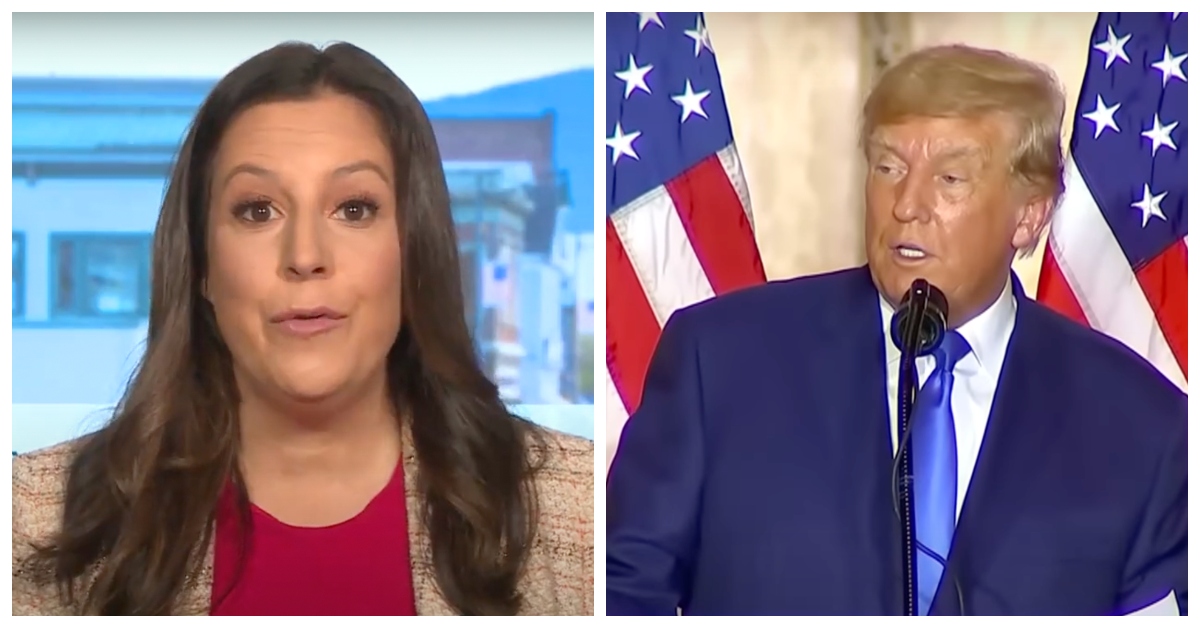Trump's Tax Bill: A Test Of Republican Party Unity

Table of Contents
Internal Divisions within the Republican Party
The passage of Trump's Tax Bill wasn't a seamless affair; it revealed significant internal divisions within the Republican Party, highlighting long-standing tensions between different factions.
Conservative vs. Moderate Factions
The debate surrounding Trump's tax plan starkly revealed the differences between fiscal conservatives and more moderate Republicans. These disagreements weren't merely about specific tax rates, but reflected fundamental disagreements on economic philosophy and the role of government.
- Corporate Tax Rates: Conservatives generally favored significantly lower corporate tax rates, arguing it would stimulate economic growth. Moderates, however, expressed concerns about the potential impact on government revenue and income inequality.
- Individual Tax Brackets: Disagreements arose over the extent of tax cuts for high-income earners. Conservatives pushed for substantial cuts across the board, while some moderates advocated for more targeted relief for middle- and lower-income families.
- Estate Tax: The elimination or significant reduction of the estate tax was a key demand for many conservatives, while moderates raised concerns about its potential impact on wealth distribution.
Prominent figures like Senator Rand Paul championed deep tax cuts aligning with a staunchly conservative approach, while others, including Senator Susan Collins, voiced concerns about the bill's potential impact on the national debt and expressed the need for greater fiscal responsibility. News reports at the time highlighted these divisions, quoting various Republican senators expressing their concerns and reservations.
The Role of the Freedom Caucus
The House Freedom Caucus, a group of conservative Republicans known for their staunch adherence to limited government principles, played a pivotal role in shaping the final version of Trump's Tax Bill. Their influence highlights the internal power dynamics within the Republican Party.
- Demands: The Freedom Caucus demanded significant tax cuts and opposed any measures they viewed as government overreach.
- Compromises: To secure their support, Republican leadership had to make concessions, sometimes compromising on their initial proposals.
Negotiations were intense, with threats of defections looming large. Instances of backroom deals and last-minute compromises were widely reported in the media, illustrating the significant influence wielded by this relatively small group of conservative Republicans.
Differing Economic Philosophies
Underlying the disagreements over specific tax policies were fundamental differences in economic philosophies. The debate largely centered around supply-side economics, the core principle behind Trump's tax cuts.
- Supply-Side Economics: Proponents argued that lower taxes would stimulate economic growth by encouraging investment and job creation.
- Alternative Approaches: Critics argued that supply-side economics often disproportionately benefits the wealthy and doesn't adequately address income inequality. They advocated for alternative approaches that prioritize social welfare and a more equitable distribution of wealth.
Economic projections from various sources at the time offered conflicting forecasts, further fueling the debate and highlighting the lack of consensus within the Republican party regarding the bill's economic impact.
The Legislative Process and its Challenges
The passage of Trump's Tax Bill wasn't just a battle of ideologies; it was also a significant test of legislative maneuvering and political strategy.
Senate Procedures and the Filibuster
Passing the bill through the Senate presented significant challenges, requiring the use of the budget reconciliation process to avoid a filibuster.
- Procedural Hurdles: Republicans had to navigate complex Senate rules and procedures, requiring strategic compromises and deft political maneuvering.
- Reconciliation: The use of reconciliation, which limits debate and requires only a simple majority, was crucial to overcome Democratic opposition.
Key senators, including Mitch McConnell, played critical roles in guiding the bill through the Senate, utilizing their legislative expertise and political acumen to navigate the intricate procedural landscape.
Negotiations and Compromises
Securing enough votes for passage necessitated numerous compromises. These compromises, while ultimately enabling passage, further exposed existing divisions within the Republican Party.
- Concessions: Specific concessions were made to different factions, sometimes involving adjustments to tax rates, deductions, or other provisions.
- Political Implications: These compromises had significant political implications, potentially weakening the party's overall message and satisfying no one fully.
The legislative process became a series of negotiations and trade-offs, demonstrating the complex dynamics at play within the Republican caucus.
Public Opinion and Backlash
The public response to Trump's Tax Bill was mixed, with polls showing significant dissatisfaction and fueling concerns about Republican popularity.
- Polling Data: Numerous polls indicated that a considerable portion of the public opposed the bill, viewing it as favoring the wealthy over the middle class.
- Media Coverage: Media outlets widely reported on public concerns about the bill's potential impact on income inequality and the national debt.
The potential long-term consequences of this unpopularity remain a subject of ongoing debate. The negative public perception of the bill likely impacted Republican performance in subsequent elections.
Long-Term Effects on Republican Unity
The divisions revealed during the Trump tax bill debate had lasting ramifications for the Republican Party's internal dynamics and its ability to govern effectively.
Impact on Future Legislation
The internal conflicts exposed during the tax bill debate significantly impacted subsequent legislative efforts. The inability to achieve consensus on key policy issues hampered the Republican agenda.
- Legislative Failures: Several subsequent legislative initiatives struggled to gain traction due to continued internal divisions and disagreements.
- Compromises: Further compromises were forced, sometimes resulting in watered-down legislation that satisfied neither faction completely.
The lack of unity within the Republican Party proved to be a major impediment to achieving its policy goals.
Shifting Political Landscape
The passage of Trump's tax bill, and the divisions it highlighted, undeniably reshaped the political landscape within the Republican Party.
- Rise/Fall of Factions: Certain factions gained or lost influence based on their role in the tax bill debate.
- Internal Party Struggles: Internal party struggles intensified, impacting primary elections and internal leadership battles.
This period marked a significant turning point, creating a more fractured and less predictable political environment within the Republican Party.
Legacy of Trump's Tax Bill
Trump's Tax Bill's legacy extends beyond its immediate economic impact. It profoundly influenced the Republican Party's image and platform.
- Future Election Cycles: The bill's perceived unpopularity may have had long-term repercussions for the party's electoral performance.
- Party's Future Direction: The divisions exposed during its passage may have influenced the party's overall strategic direction.
The lasting impact on the party's image and future trajectory remains a key area of analysis.
Conclusion
Trump's Tax Bill served as a critical test of Republican Party unity, exposing deep-seated ideological divisions and challenging the party's ability to operate cohesively. The legislative process itself revealed internal power struggles, resulting in compromises with potentially significant long-term consequences. The bill's impact on future legislation, internal party dynamics, and the party's overall image highlights the lasting legacy of this pivotal moment in Republican Party history.
Call to Action: Understanding the intricacies of Trump's Tax Bill and its profound impact on the Republican Party is crucial for anyone following American politics. Continue to research and analyze the enduring effects of this landmark legislation to fully grasp its significance in shaping the ongoing narrative of the Republican Party and the future of American politics. Learn more about the complexities of Trump's tax bill and its continuing legacy.

Featured Posts
-
 Liverpool Awaits Klopps Return Ahead Of Final Match
May 22, 2025
Liverpool Awaits Klopps Return Ahead Of Final Match
May 22, 2025 -
 Betalen Met Tikkie Een Handleiding Voor Nederlandse Bankgebruikers
May 22, 2025
Betalen Met Tikkie Een Handleiding Voor Nederlandse Bankgebruikers
May 22, 2025 -
 Analyse De Les Grands Fusains De Boulemane D Abdelkebir Rabi Au Book Club Le Matin
May 22, 2025
Analyse De Les Grands Fusains De Boulemane D Abdelkebir Rabi Au Book Club Le Matin
May 22, 2025 -
 New Trailer Julianne Moore Stars In The Dark Comedy Series Siren
May 22, 2025
New Trailer Julianne Moore Stars In The Dark Comedy Series Siren
May 22, 2025 -
 Two Alarm Fire Levels York County Pa Home Investigation Underway
May 22, 2025
Two Alarm Fire Levels York County Pa Home Investigation Underway
May 22, 2025
